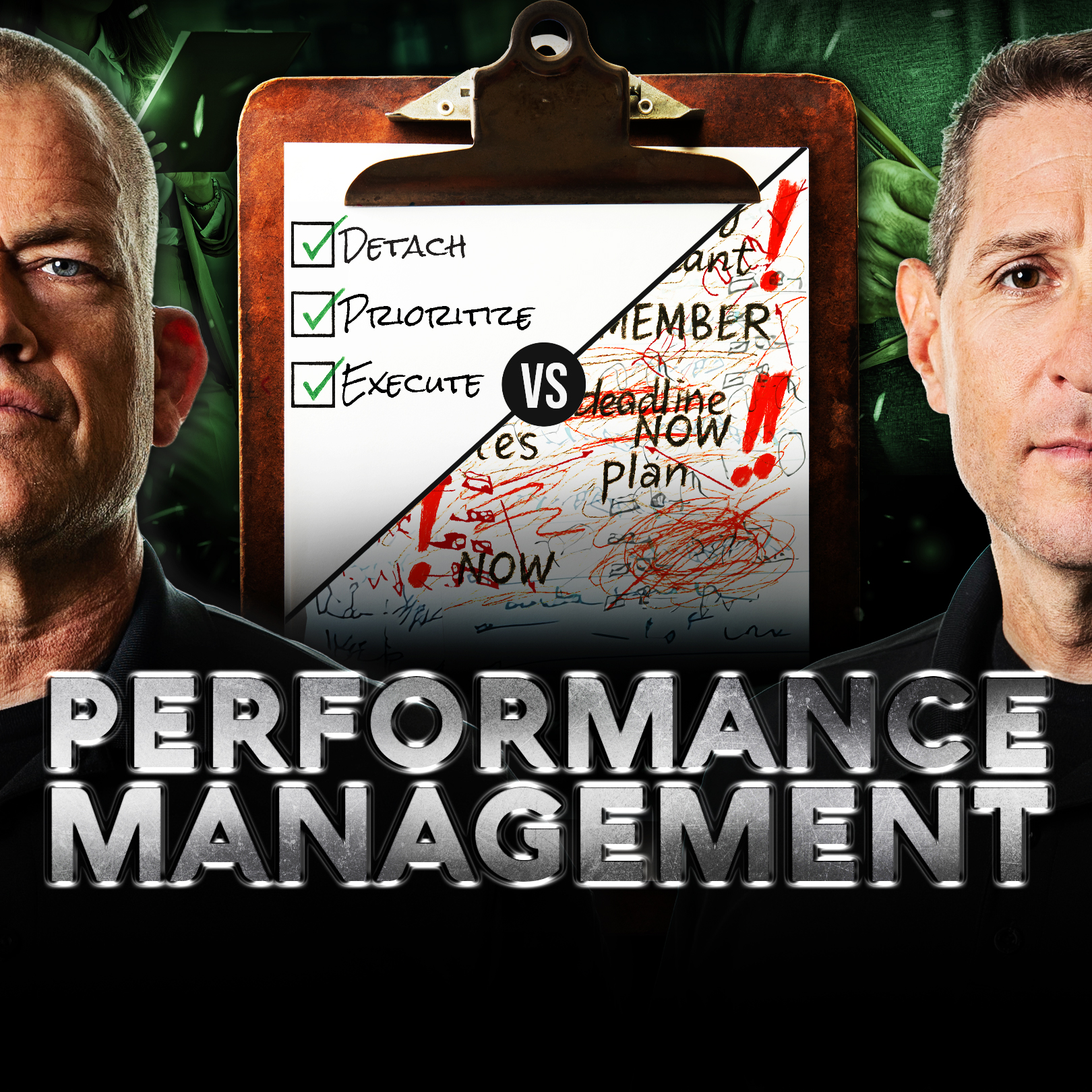Performance management isn’t about punishing failure—it’s about creating conditions for success and enabling better performance. This starts with a mindset that asks, “How do I help my team succeed?” instead of one that asks, “How do I hold my team accountable?”
Of course, accountability matters. Without accountability, there is no standard. But accountability doesn’t start by focusing on others—it starts with us. Good leaders don’t start by pointing out what others are doing wrong; they begin looking for what we can do better.
If you want to know how to improve work performance, start with yourself. If you’re struggling with how to improve business performance, look at how well you’re leading the team. If your employees are not performing, ask first, “How can I improve my leadership?” That’s what Extreme Ownership looks like.
Accountability Starts with Leadership
When someone’s performance is lacking, we must resist the urge to immediately blame the individual. If our employees are not meeting expectations, our first action should be to look at our own leadership and the relationship we have established with them.
Ask yourself:
· Have I clearly communicated what success looks like?
· Do they understand the why behind their tasks?
· Are the priorities clear?
· Have I equipped them with the resources, training, and support they need?
· Am I actively building relationships—not to play politics, but to ensure alignment and success?
Accountability without leadership is just blame. True accountability is about support. Leaders should give people every opportunity to meet expectations. Try removing obstacles, clarifying priorities, and making sure they are set up for success. Only after we’ve done all we can to help them does it become time to shift the conversation to holding them accountable.
How Can You Improve Your Performance at Work?
Improving our own performance starts with the same mindset of ownership. If you’re struggling with performance, ask:
- Do I understand the mission? The priorities? The “why”?
- Am I investing in relationships—with my boss, my peers, my employees?
- Am I taking responsibility for my own development?
- Am I blaming external factors, or am I controlling what I can control?
- Have I detached from my emotions so I can see things objectively?
When we consider how to improve performance, we cannot wait for conditions to be perfect. We cannot depend on others’ leadership to get better. We must lead ourselves in order to achieve the standard and make an impact—regardless of title or authority.
How to Improve Employee Performance
So, how do we take this same mindset and apply it to our teams? Here are a few critical steps:
Set Clear Expectations
People can’t meet expectations they don’t understand. If performance is lacking, clarify the standard. Make it simple. Ensure that expectations are realistic and achievable.
Ensure They Understand the “Why”
People don’t commit to tasks—they commit to missions. If they don’t understand why something is important, they will never give their full effort. Leaders should be connecting the dots between their employees’ work and the bigger picture.
Develop a Culture of Ownership
If we micromanage, we train people to wait for orders. If we blame, we train people to cover their mistakes. But if we model ownership, we create a team that takes responsibility. The more responsibility we give, the more engaged people become.
Build Relationships
People work harder for leaders they trust. Relationships are not about manipulation—they are about investment. Take time to understand your team. Show them you care. The stronger the relationship, the stronger the team.
Prioritize and Execute
If everything is a priority, nothing is. When performance is slipping, simplify. Help the team focus on what matters most. Align on the mission. Execute one step at a time.
How to Improve Business Performance
Business performance is the outcome of leadership at scale. At Echelon Front, we see the difference leadership makes with our clients every single day. Organizations often come to us in distress, when productivity or profitability is down and they are uncertain of what to do. But once they embrace this mindset of Extreme Ownership and foster leadership throughout the organization, they see how to improve business performance at every level.
To improve business performance, regardless of industry, apply the principles of good leadership consistently and broadly across the team. Evaluate these questions within the team.
· Are we developing relationships across the organization?
· Do we maintain simple communication and plans?
· Do we have clear priorities?
· Are leaders at every level aligned on the mission?
· Are we empowering teams to take ownership?
· Are we focused on long-term success, not just short-term wins?
Improving business performance is the byproduct of improving leadership. When leaders take ownership, empower their teams, and set clear expectations, performance follows.
The Role of Leadership in Performance Management
At its core, performance management is about leadership. And leadership is about accountability. But accountability is not about punishment—it’s about ownership. To improve employee and business performance, we must first improve ourselves. Lead well, and results will follow.



